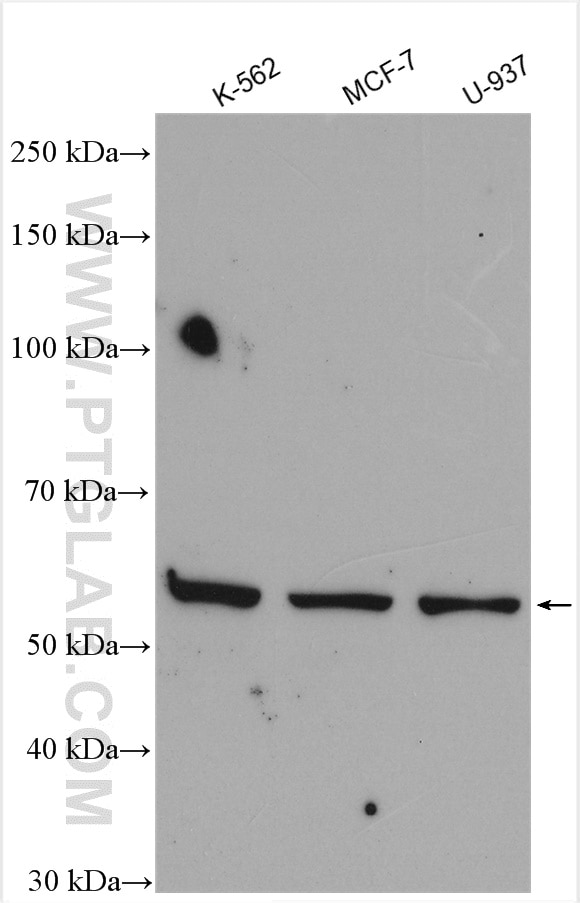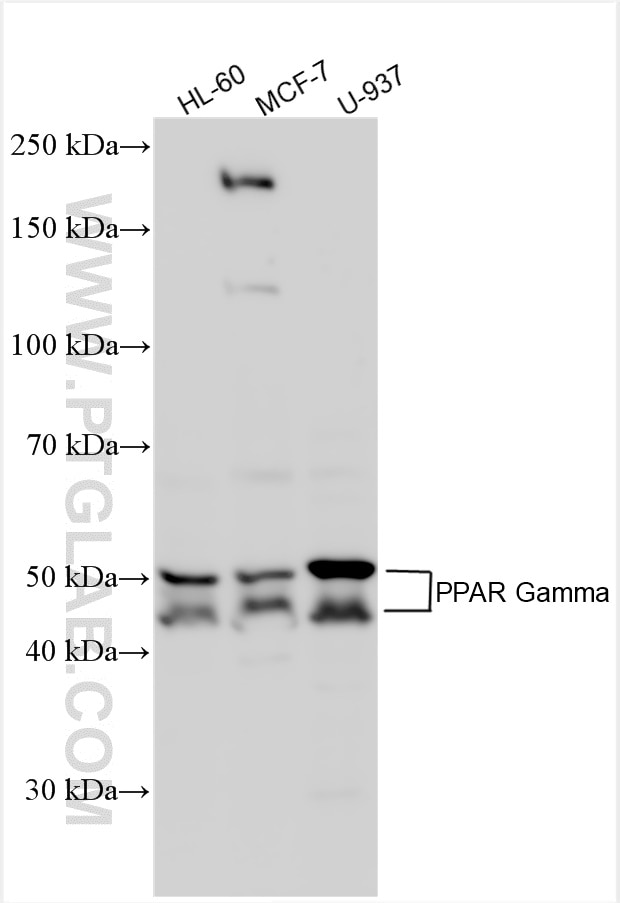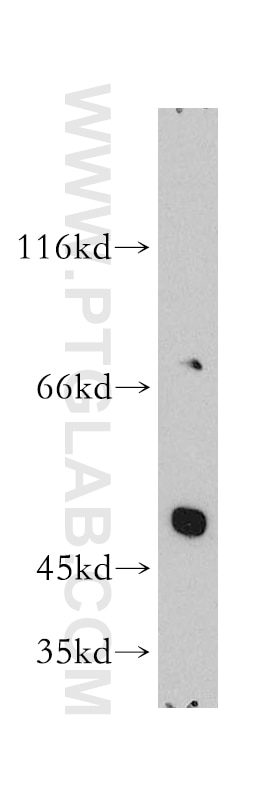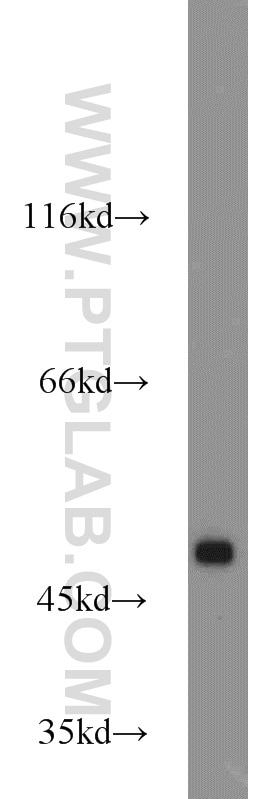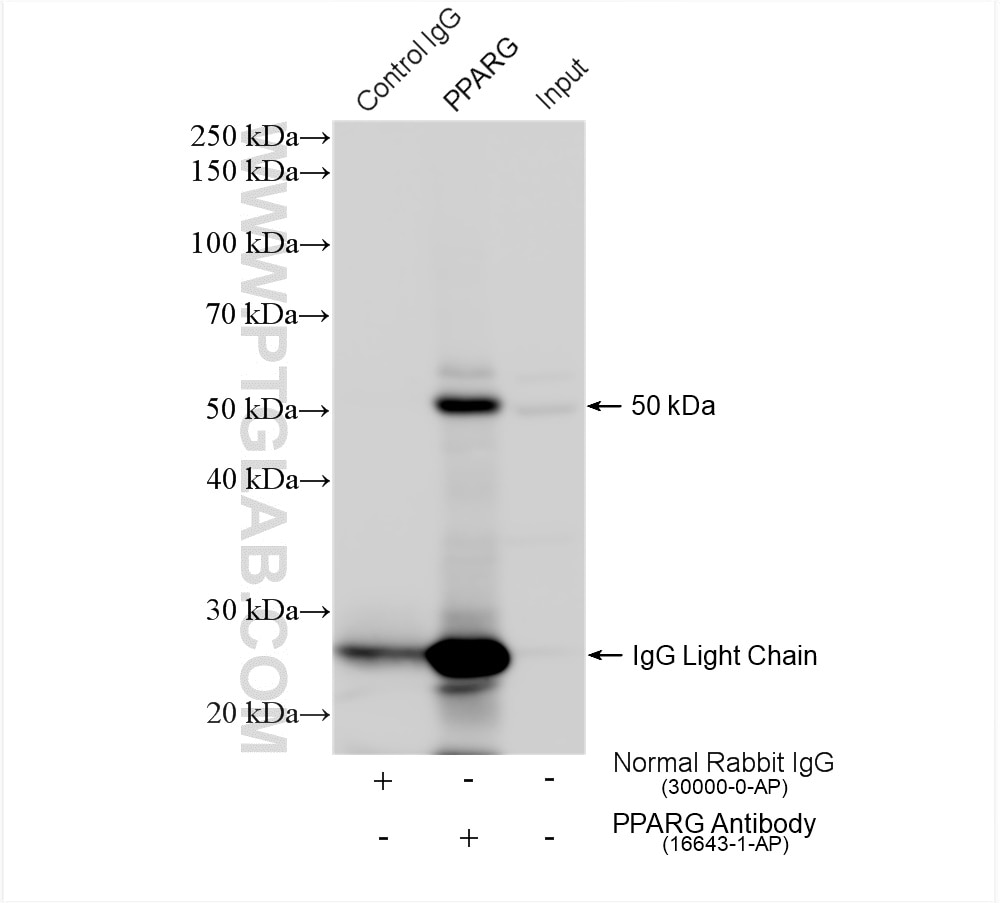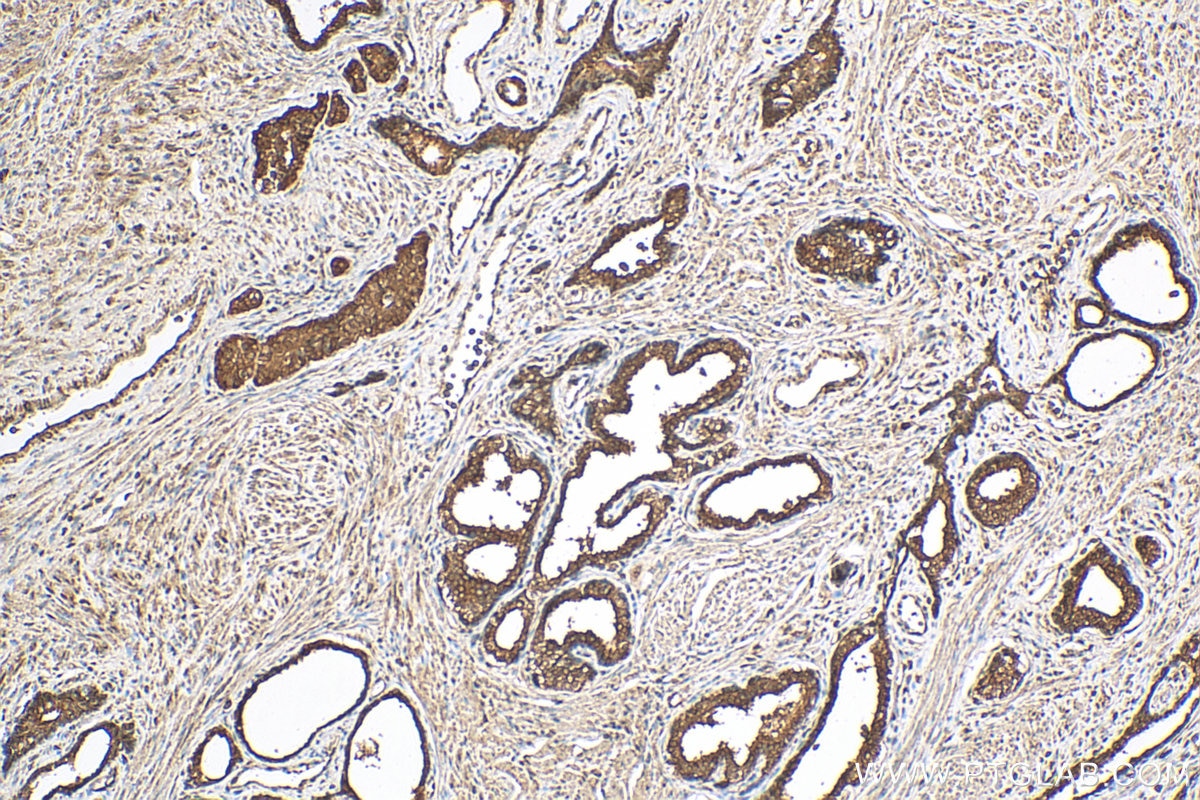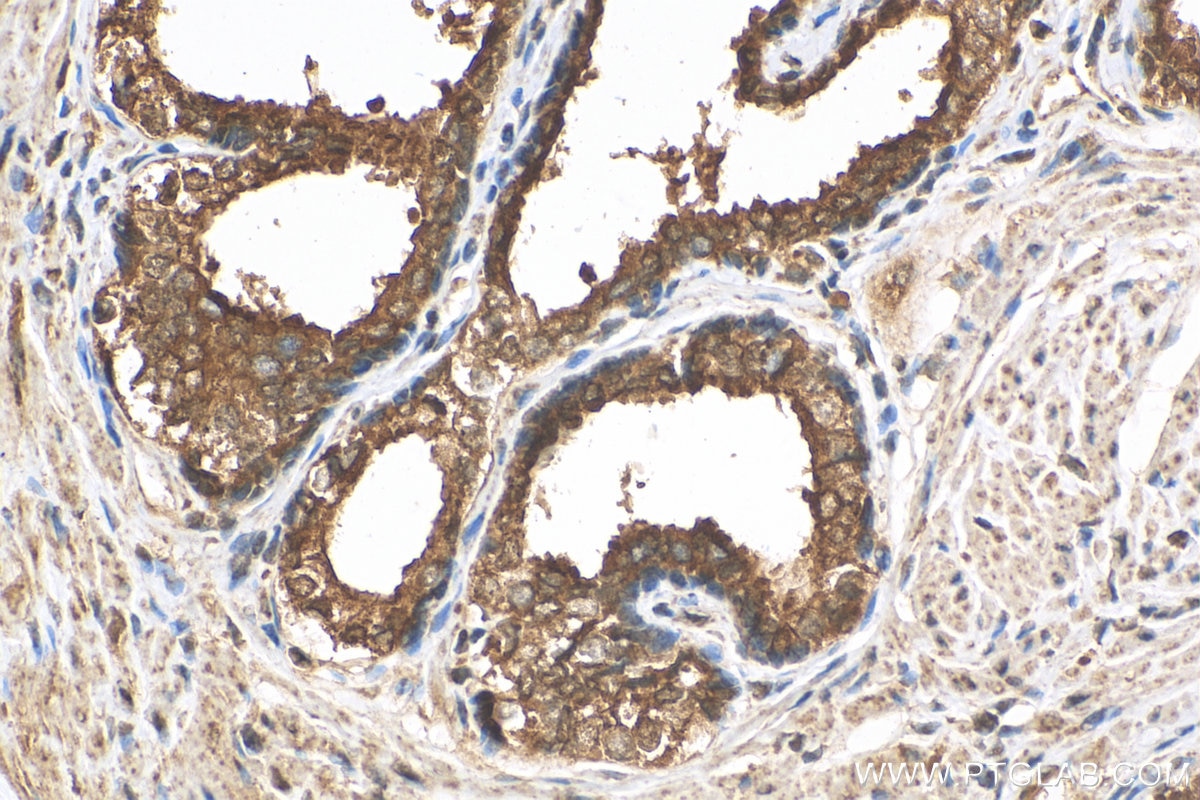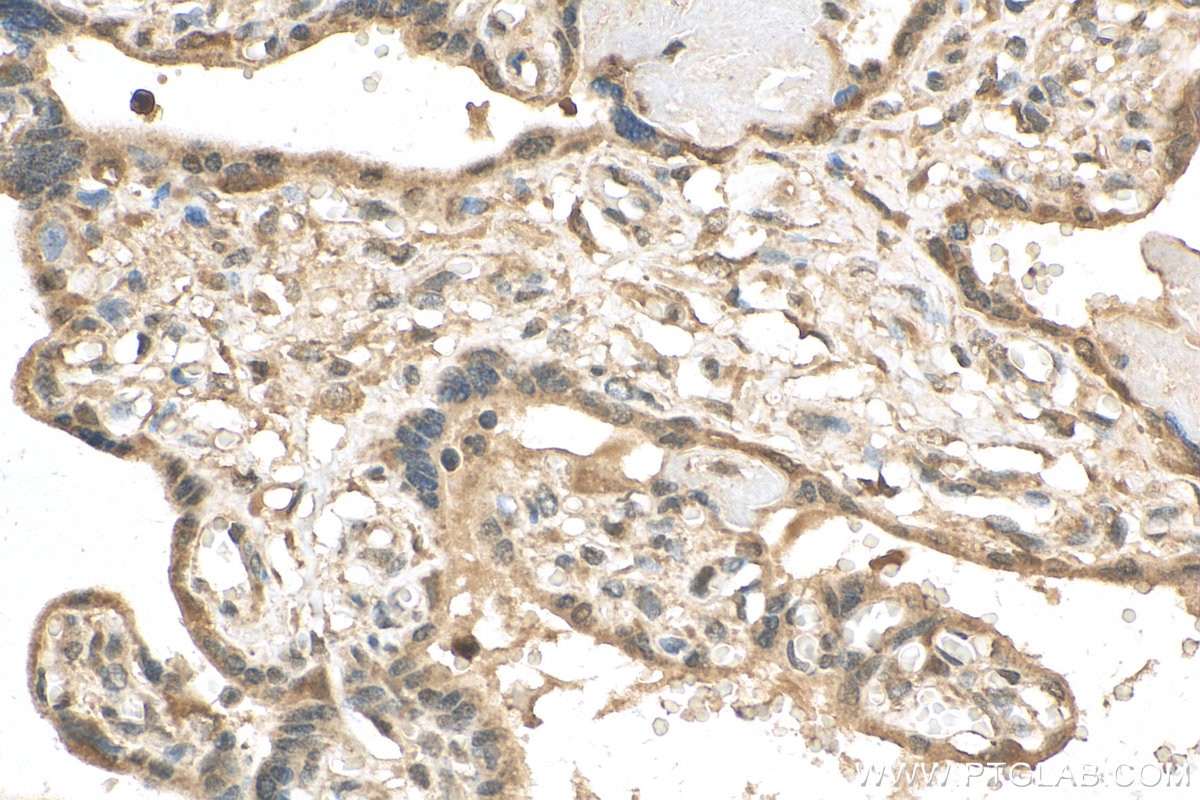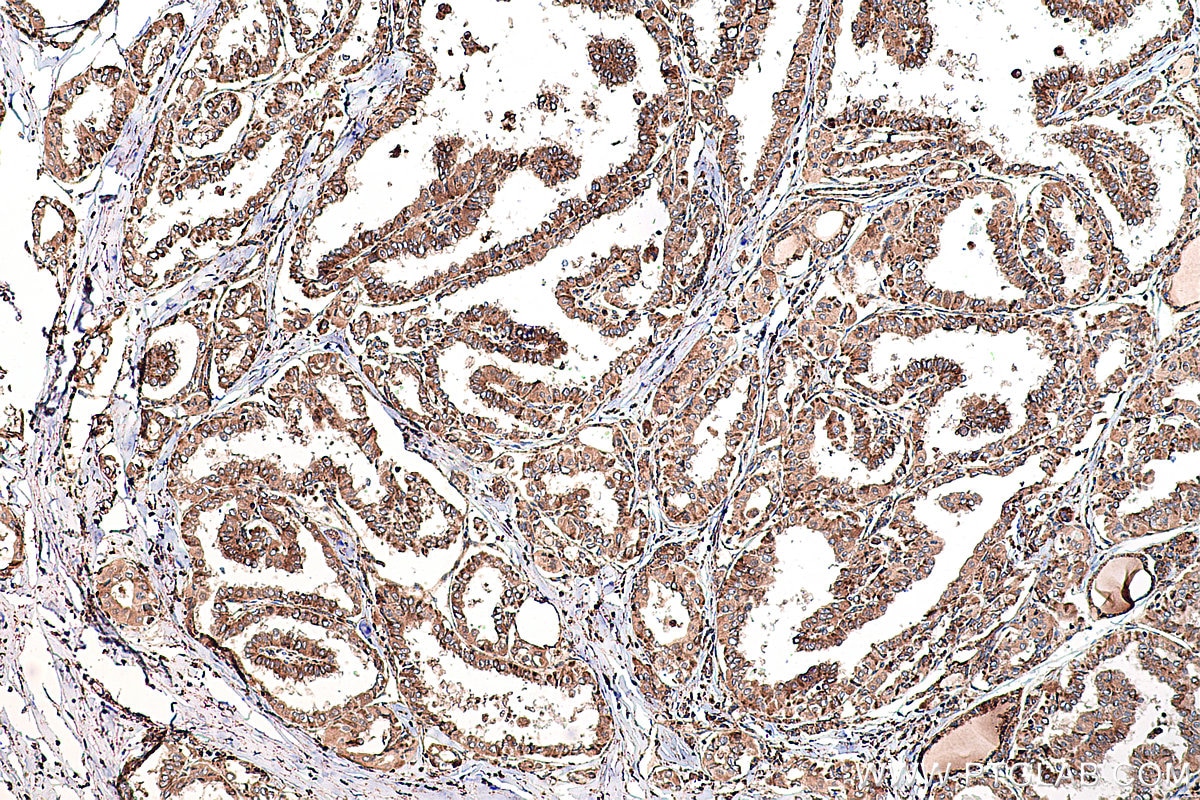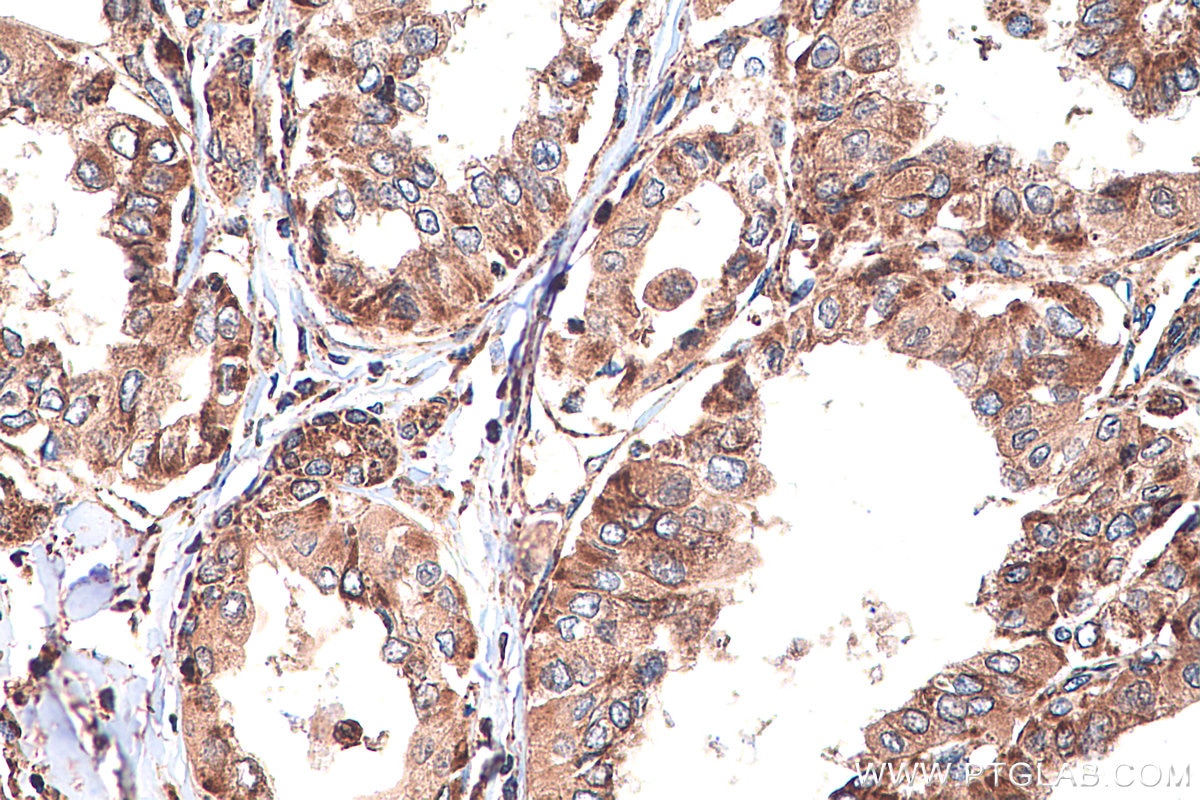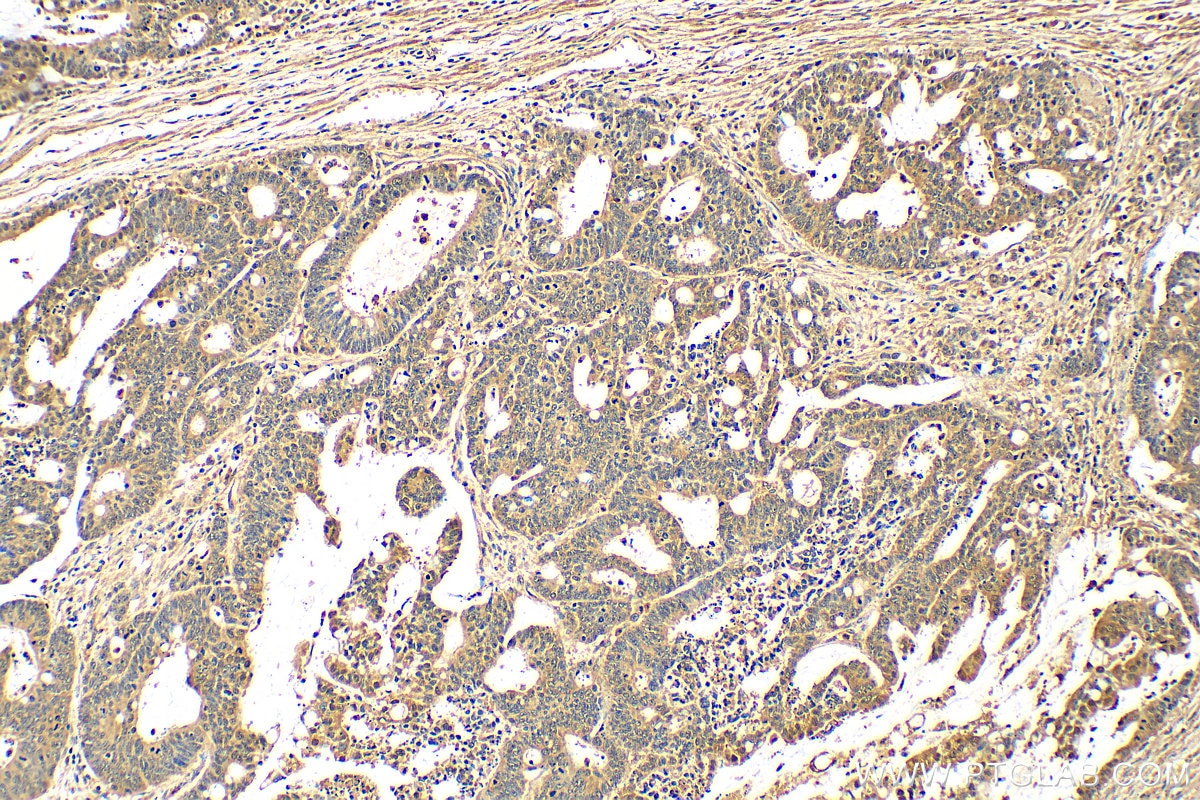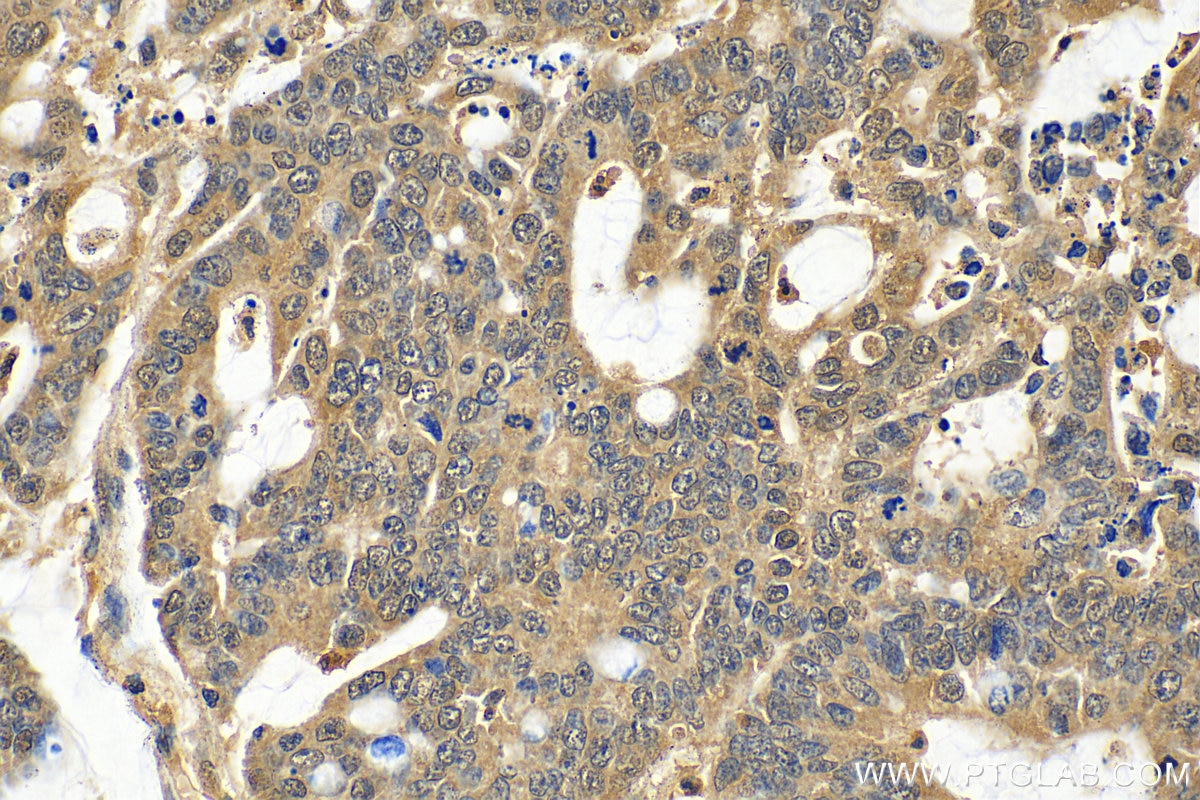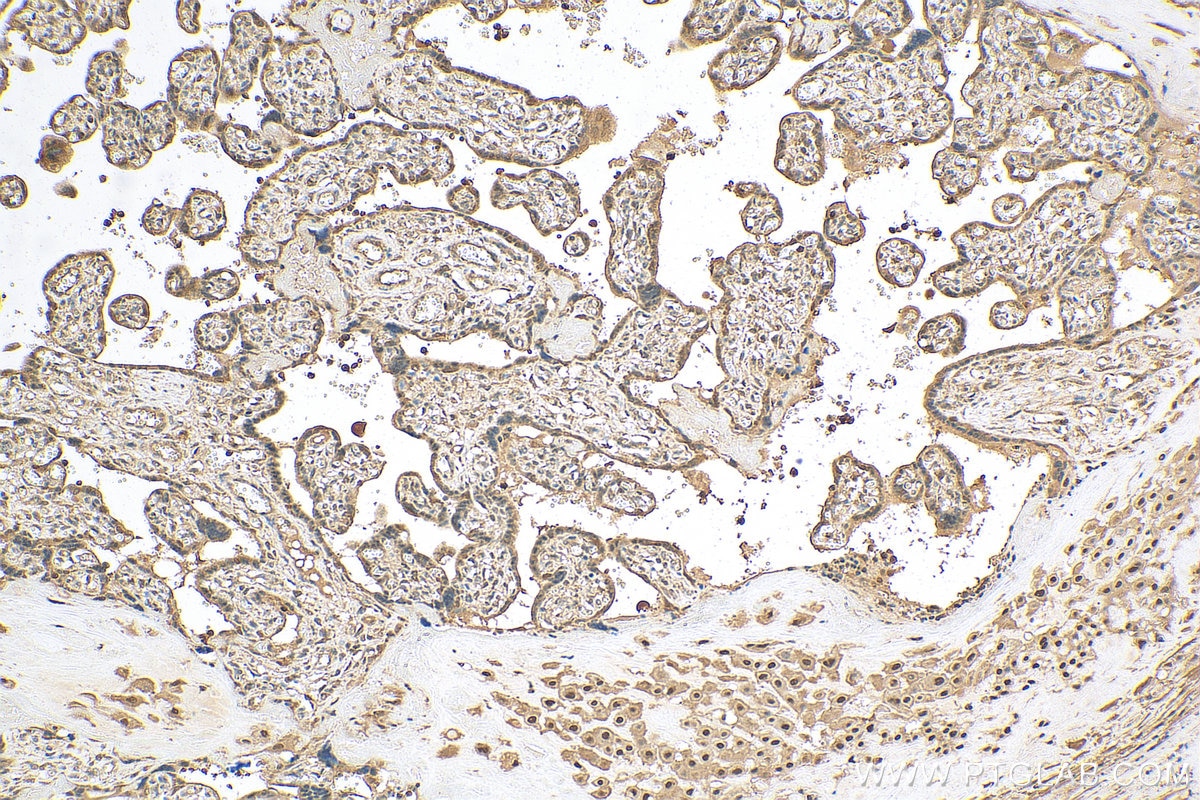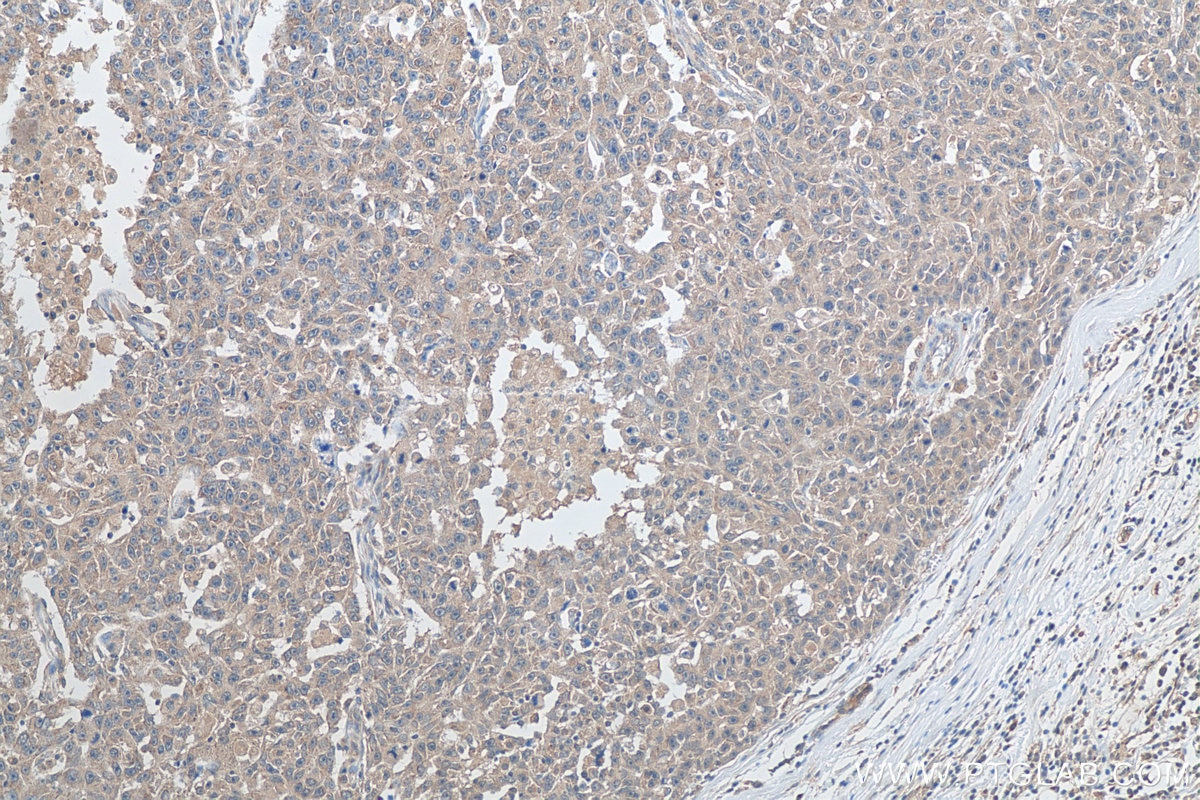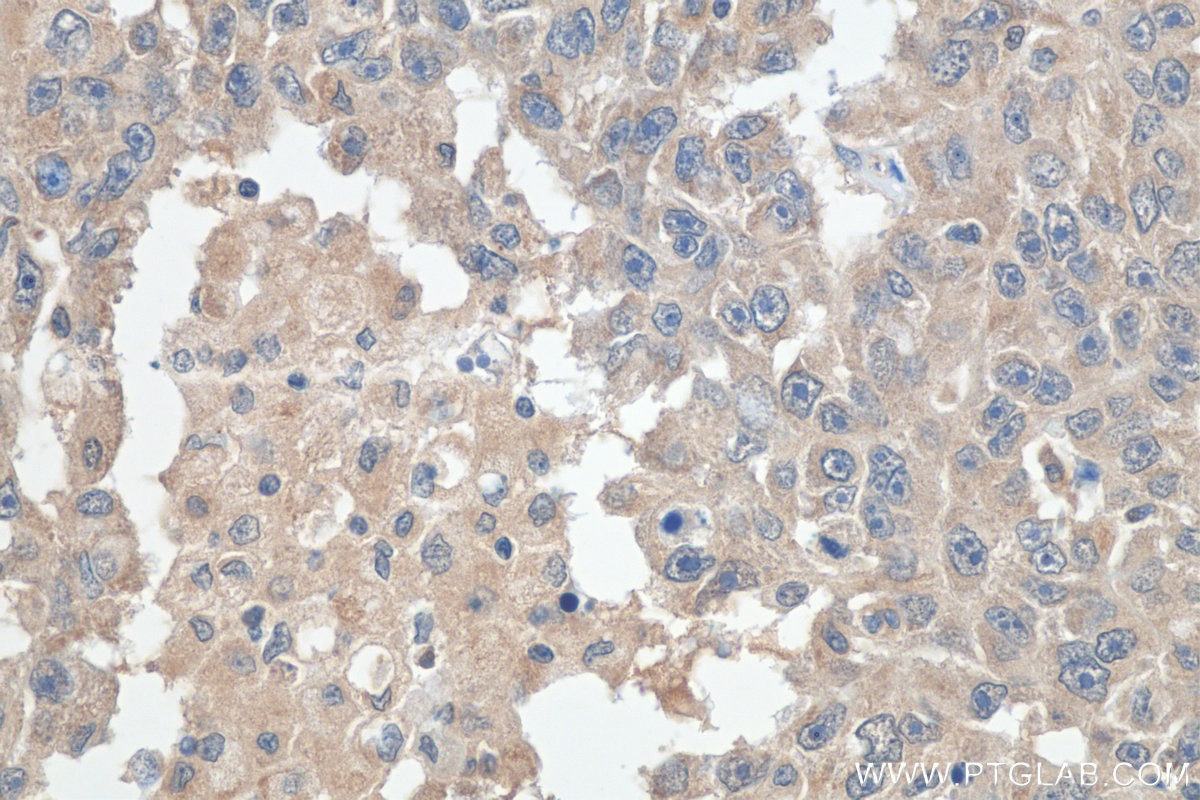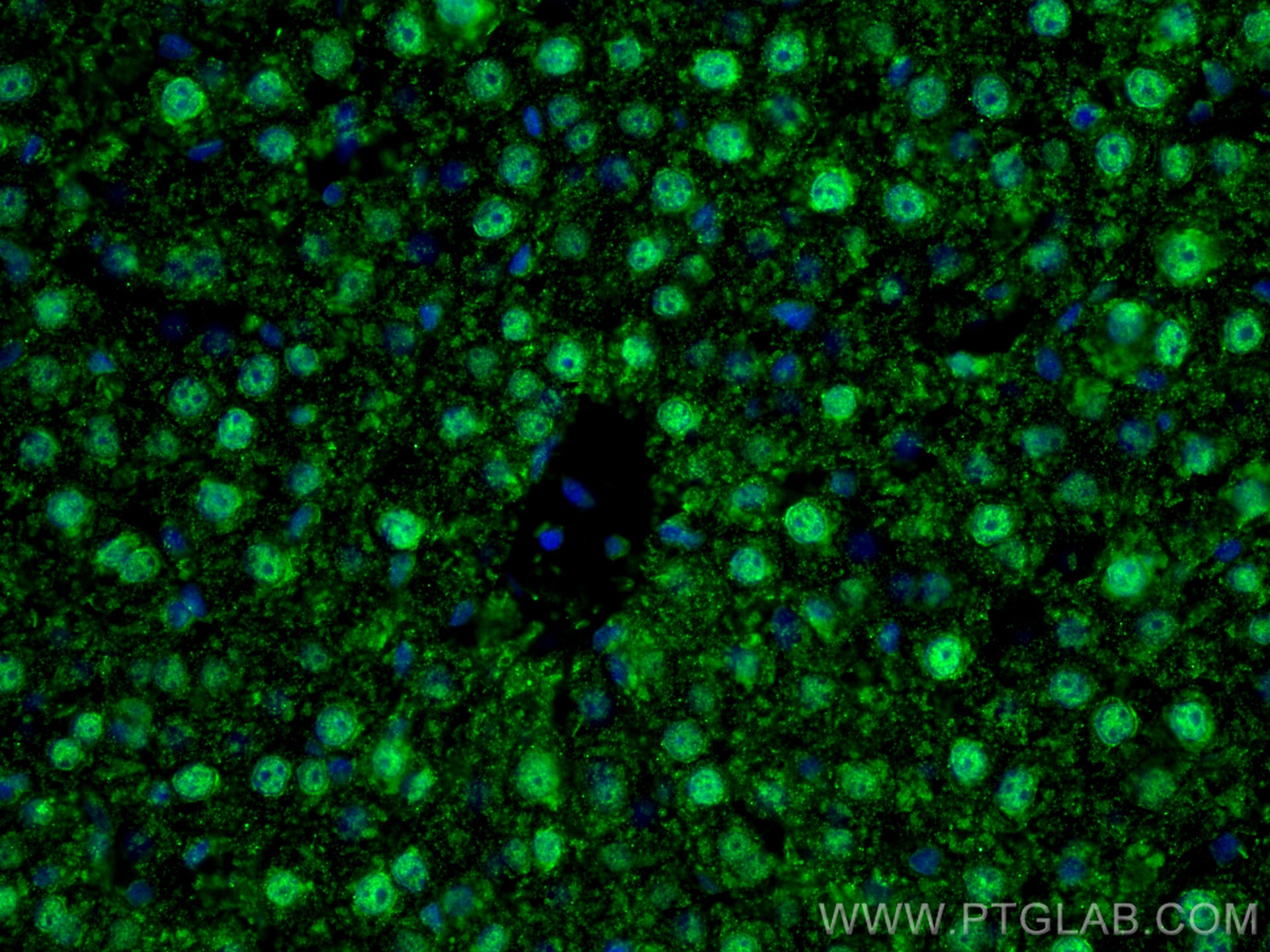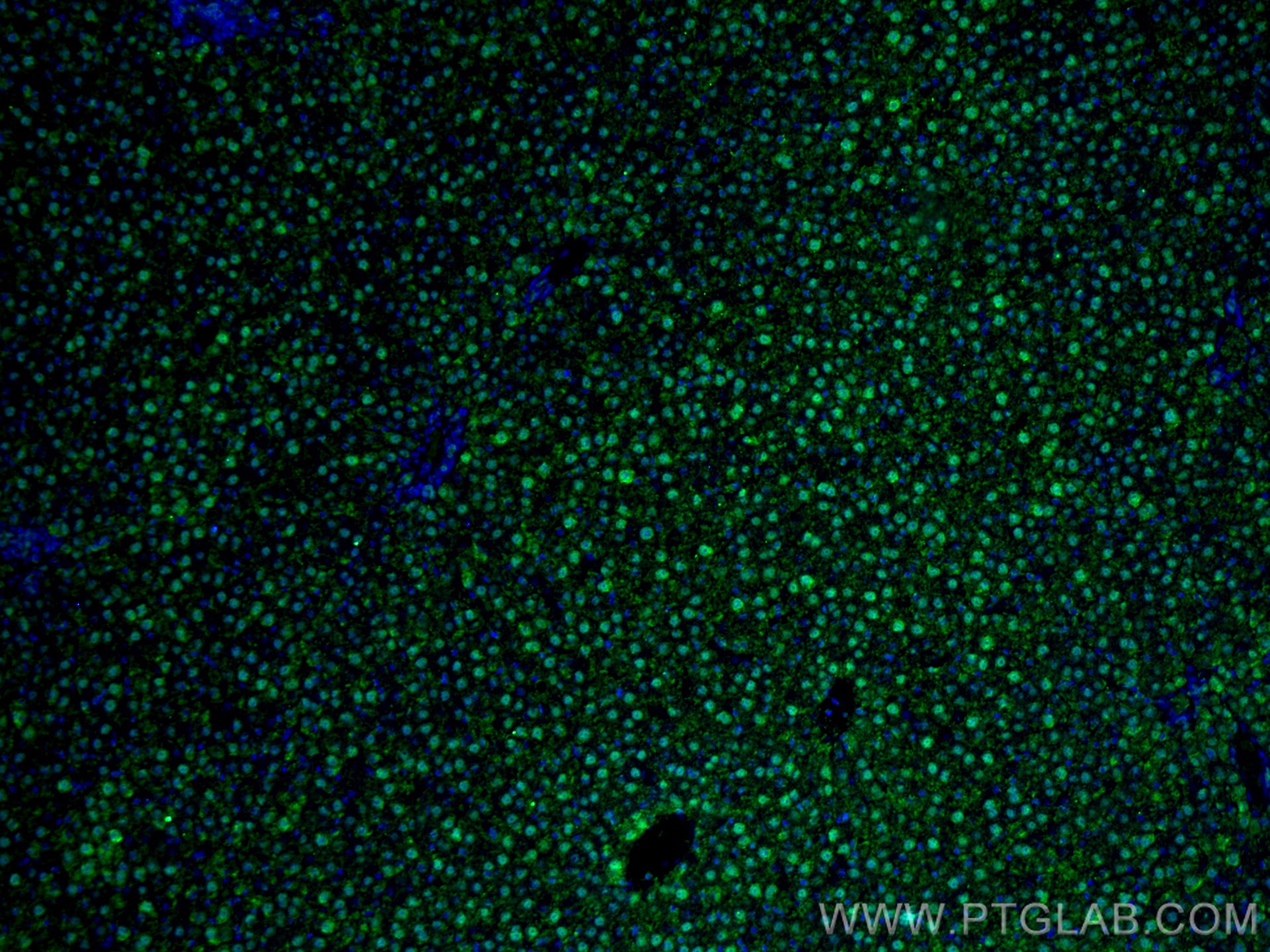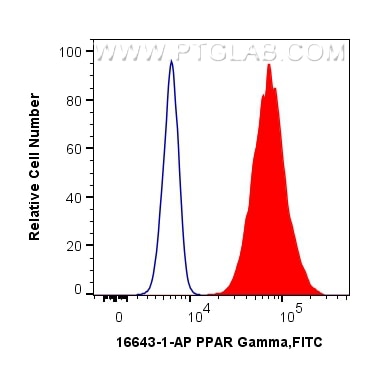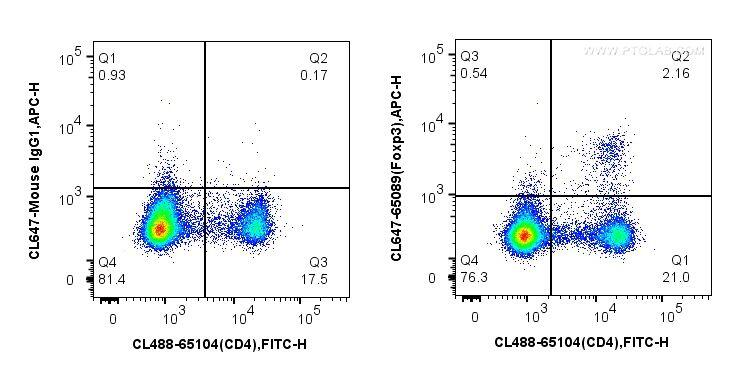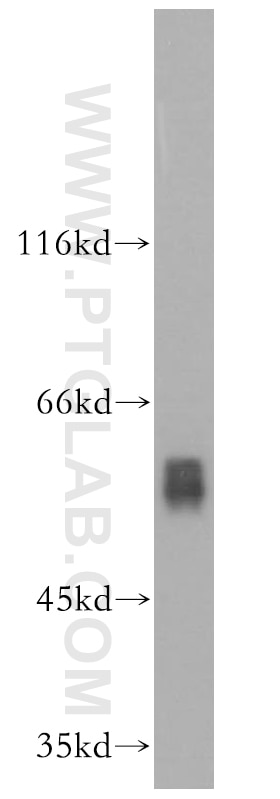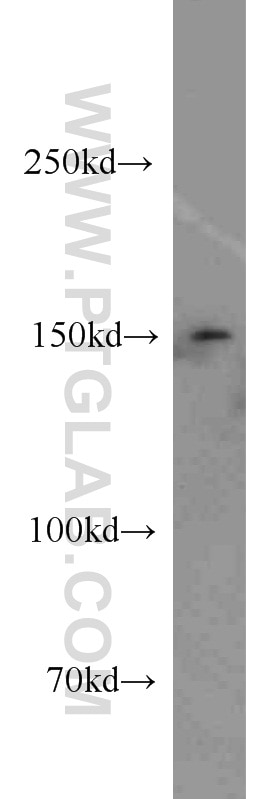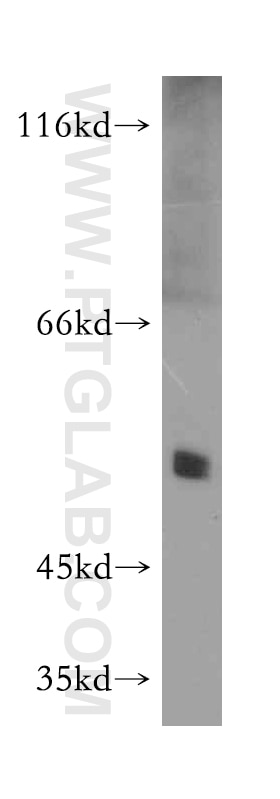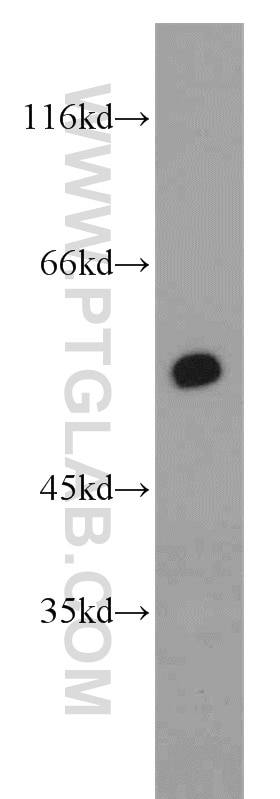- Featured Product
- KD/KO Validated
PPAR Gamma Polyklonaler Antikörper
PPAR Gamma Polyklonal Antikörper für FC, IF, IHC, IP, WB, ELISA
Wirt / Isotyp
Kaninchen / IgG
Getestete Reaktivität
human, Maus, Ratte und mehr (4)
Anwendung
WB, IP, IHC, IF, FC, CoIP, ChIP, ELISA
Konjugation
Unkonjugiert
Kat-Nr. : 16643-1-AP
Synonyme
Galerie der Validierungsdaten
Geprüfte Anwendungen
| Erfolgreiche Detektion in WB | K-562-Zellen, HL-60-Zellen, humanes Herzgewebe, Mausherzgewebe, MCF-7-Zellen, U-937-Zellen |
| Erfolgreiche IP | HL-60-Zellen |
| Erfolgreiche Detektion in IHC | humanes Prostatakarzinomgewebe, humanes Kolonkarzinomgewebe, humanes Mammakarzinomgewebe, humanes Plazenta-Gewebe, humanes Schilddrüsenkarzinomgewebe Hinweis: Antigendemaskierung mit TE-Puffer pH 9,0 empfohlen. (*) Wahlweise kann die Antigendemaskierung auch mit Citratpuffer pH 6,0 erfolgen. |
| Erfolgreiche Detektion in IF | Rattenlebergewebe |
| Erfolgreiche Detektion in FC | HeLa-Zellen |
Empfohlene Verdünnung
| Anwendung | Verdünnung |
|---|---|
| Western Blot (WB) | WB : 1:1000-1:5000 |
| Immunpräzipitation (IP) | IP : 0.5-4.0 ug for 1.0-3.0 mg of total protein lysate |
| Immunhistochemie (IHC) | IHC : 1:200-1:800 |
| Immunfluoreszenz (IF) | IF : 1:50-1:500 |
| Durchflusszytometrie (FC) | FC : 0.40 ug per 10^6 cells in a 100 µl suspension |
| It is recommended that this reagent should be titrated in each testing system to obtain optimal results. | |
| Sample-dependent, check data in validation data gallery | |
Veröffentlichte Anwendungen
| KD/KO | See 16 publications below |
| WB | See 364 publications below |
| IHC | See 38 publications below |
| IF | See 34 publications below |
| IP | See 7 publications below |
| CoIP | See 6 publications below |
| ChIP | See 7 publications below |
Produktinformation
16643-1-AP bindet in WB, IP, IHC, IF, FC, CoIP, ChIP, ELISA PPAR Gamma und zeigt Reaktivität mit human, Maus, Ratten
| Getestete Reaktivität | human, Maus, Ratte |
| In Publikationen genannte Reaktivität | human, Ente, hamster, Hausschwein, Maus, Ratte, Rind |
| Wirt / Isotyp | Kaninchen / IgG |
| Klonalität | Polyklonal |
| Typ | Antikörper |
| Immunogen | PPAR Gamma fusion protein Ag10005 |
| Vollständiger Name | peroxisome proliferator-activated receptor gamma |
| Berechnetes Molekulargewicht | 58 kDa |
| Beobachtetes Molekulargewicht | 50-60 kDa |
| GenBank-Zugangsnummer | BC006811 |
| Gene symbol | PPARG |
| Gene ID (NCBI) | 5468 |
| Konjugation | Unkonjugiert |
| Form | Liquid |
| Reinigungsmethode | Antigen-Affinitätsreinigung |
| Lagerungspuffer | PBS mit 0.02% Natriumazid und 50% Glycerin pH 7.3. |
| Lagerungsbedingungen | Bei -20°C lagern. Nach dem Versand ein Jahr lang stabil Aliquotieren ist bei -20oC Lagerung nicht notwendig. 20ul Größen enthalten 0,1% BSA. |
Hintergrundinformationen
Peroxisome Proliferator-Activated Receptors (PPARs) are ligand-activated intracellular transcription factors, members of the nuclear hormone receptor superfamily (NR), that includes estrogen, thyroid hormone receptors, retinoic acid, Vitamin D3 as well as retinoid X receptors (RXRs). The PPAR subfamily consists of three subtypes encoded by distinct genes denoted PPARα (NR1C1), PPARβ/δ (NR1C2) and PPARγ (NR1C3), which are activated by selective ligands. PPARγ, also named as PPARG, contains one nuclear receptor DNA-binding domain and is a receptor that binds peroxisome proliferators such as hypolipidemic drugs and fatty acids. It plays an important role in the regulation of lipid homeostasis, adipogenesis, ins resistance, and development of various organs. Defects in PPARG are the cause of familial partial lipodystrophy type 3 (FPLD3) and may be associated with susceptibility to obesity. Defects in PPARG can lead to type 2 ins-resistant diabetes and hypertension. PPARG mutations may be associated with colon cancer. Genetic variations in PPARG are associated with susceptibility to glioma type 1 (GLM1). PPARG has two isoforms with molecular weight 57 kDa and 54 kDa (PMID: 9831621), but modified PPARG is about 67 KDa (PMID: 16809887). PPARG2 is a splice variant and has an additional 30 amino acids at the N-terminus (PMID: 15689403). Experimental data indicate that a 45 kDa protein displaying three different sequences immunologically related to the nuclear receptor PPARG2 is located in mitochondria (mt-PPAR). However, the molecular weight of this protein is clearly less when compared to that of PPARG2 (57 kDa) (PMID: 10922459). PPARG has been reported to be localized mainly (but not always) in the nucleus. PPARG can also be detected in the cytoplasm and was reported to possess extra-nuclear/non-genomic actions (PMID: 17611413; 19432669; 14681322).
Protokolle
| Produktspezifische Protokolle | |
|---|---|
| WB protocol for PPAR Gamma antibody 16643-1-AP | Protokoll herunterladen |
| IHC protocol for PPAR Gamma antibody 16643-1-AP | Protokoll herunterladen |
| IF protocol for PPAR Gamma antibody 16643-1-AP | Protokoll herunterladen |
| IP protocol for PPAR Gamma antibody 16643-1-AP | Protokoll herunterladen |
| Standard-Protokolle | |
|---|---|
| Klicken Sie hier, um unsere Standardprotokolle anzuzeigen |
Publikationen
| Species | Application | Title |
|---|---|---|
Nat Nanotechnol Photoacoustic molecular imaging-escorted adipose photodynamic-browning synergy for fighting obesity with virus-like complexes. | ||
ACS Nano Dual Inhibition of Endoplasmic Reticulum Stress and Oxidation Stress Manipulates the Polarization of Macrophages under Hypoxia to Sensitize Immunotherapy. | ||
J Pineal Res Single-cell RNA sequencing of preadipocytes reveals the cell fate heterogeneity induced by melatonin. | ||
Nat Commun N1-methyladenosine methylation in tRNA drives liver tumourigenesis by regulating cholesterol metabolism. | ||
Nat Commun METTL3 is essential for postnatal development of brown adipose tissue and energy expenditure in mice. | ||
Research (Wash D C) Herpetrione, a New Type of PPARα Ligand as a Therapeutic Strategy Against Nonalcoholic Steatohepatitis |
Rezensionen
The reviews below have been submitted by verified Proteintech customers who received an incentive forproviding their feedback.
FH Surendra (Verified Customer) (12-30-2023) | I purchased this antibody by seeing single band on web page, but it is giving several bands, so its really tough to determine which band is real PPAR gamma.
|
FH Giulia (Verified Customer) (02-21-2022) | The antibody performed well
|
FH Boyan (Verified Customer) (04-24-2019) | By WB, this antibody labeled many bands, which makes it very hard to distinguish which one is the actual PPARg.
|
